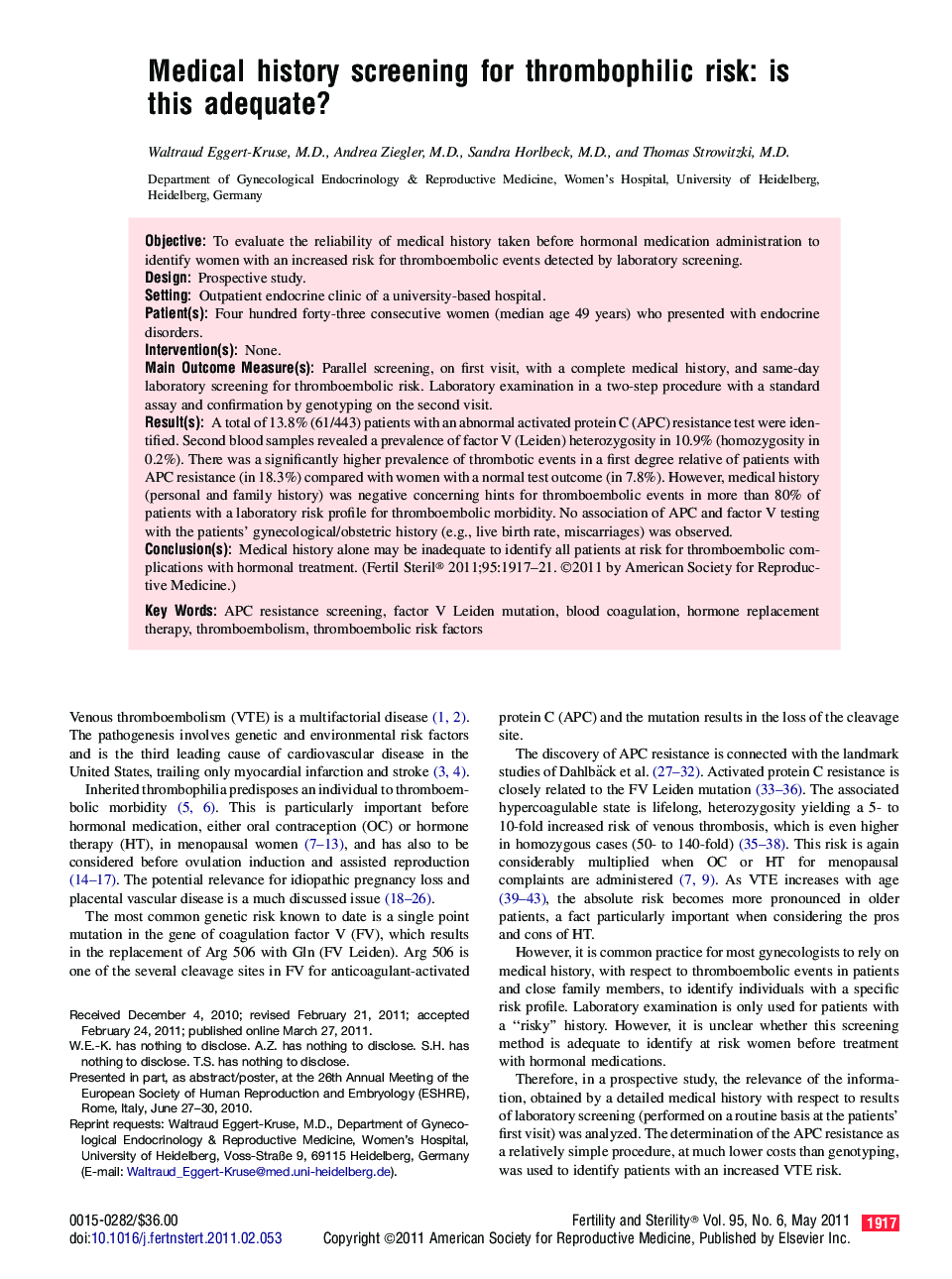| Article ID | Journal | Published Year | Pages | File Type |
|---|---|---|---|---|
| 3940056 | Fertility and Sterility | 2011 | 5 Pages |
ObjectiveTo evaluate the reliability of medical history taken before hormonal medication administration to identify women with an increased risk for thromboembolic events detected by laboratory screening.DesignProspective study.SettingOutpatient endocrine clinic of a university-based hospital.Patient(s)Four hundred forty-three consecutive women (median age 49 years) who presented with endocrine disorders.Intervention(s)None.Main Outcome Measure(s)Parallel screening, on first visit, with a complete medical history, and same-day laboratory screening for thromboembolic risk. Laboratory examination in a two-step procedure with a standard assay and confirmation by genotyping on the second visit.Result(s)A total of 13.8% (61/443) patients with an abnormal activated protein C (APC) resistance test were identified. Second blood samples revealed a prevalence of factor V (Leiden) heterozygosity in 10.9% (homozygosity in 0.2%). There was a significantly higher prevalence of thrombotic events in a first degree relative of patients with APC resistance (in 18.3%) compared with women with a normal test outcome (in 7.8%). However, medical history (personal and family history) was negative concerning hints for thromboembolic events in more than 80% of patients with a laboratory risk profile for thromboembolic morbidity. No association of APC and factor V testing with the patients’ gynecological/obstetric history (e.g., live birth rate, miscarriages) was observed.Conclusion(s)Medical history alone may be inadequate to identify all patients at risk for thromboembolic complications with hormonal treatment.
